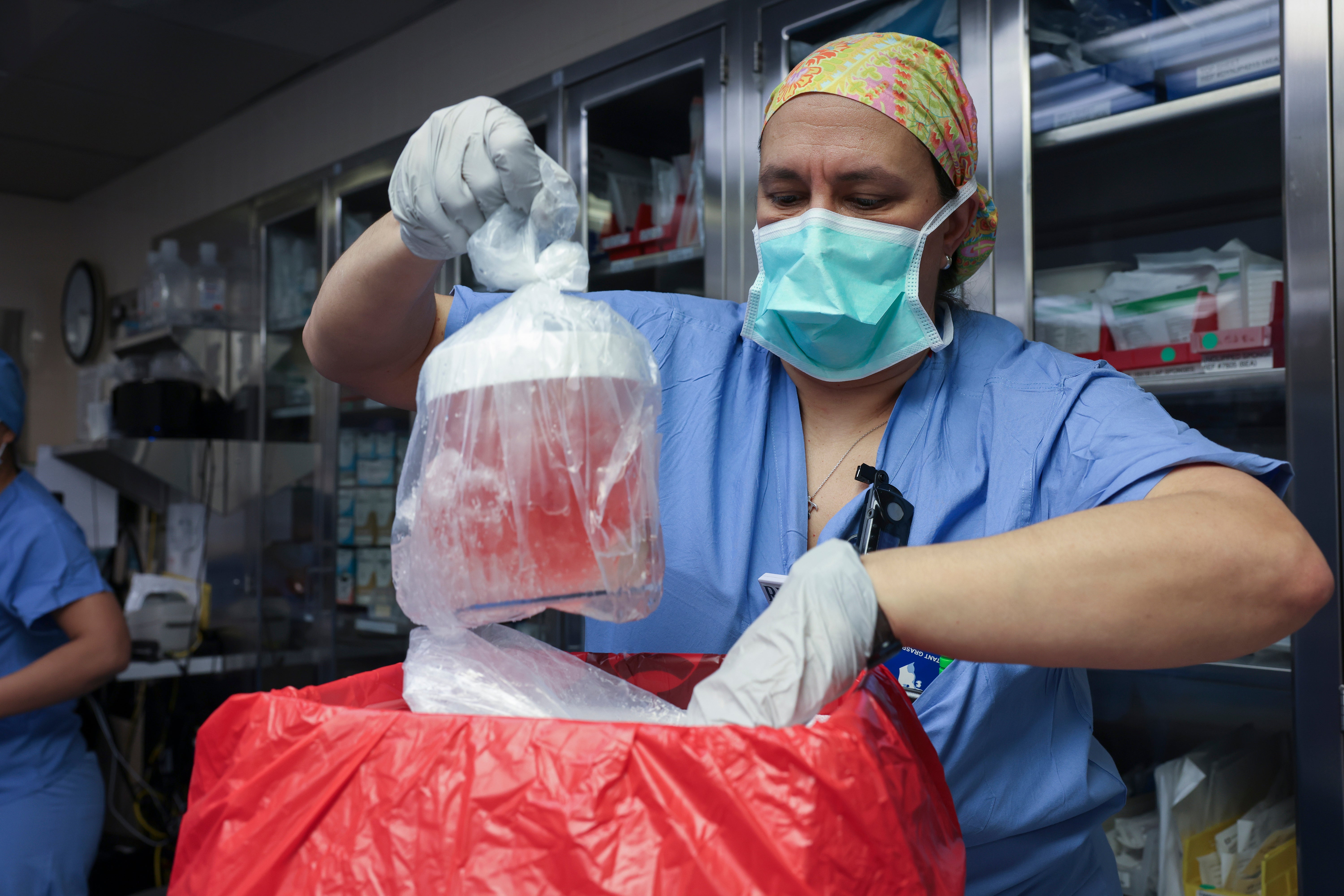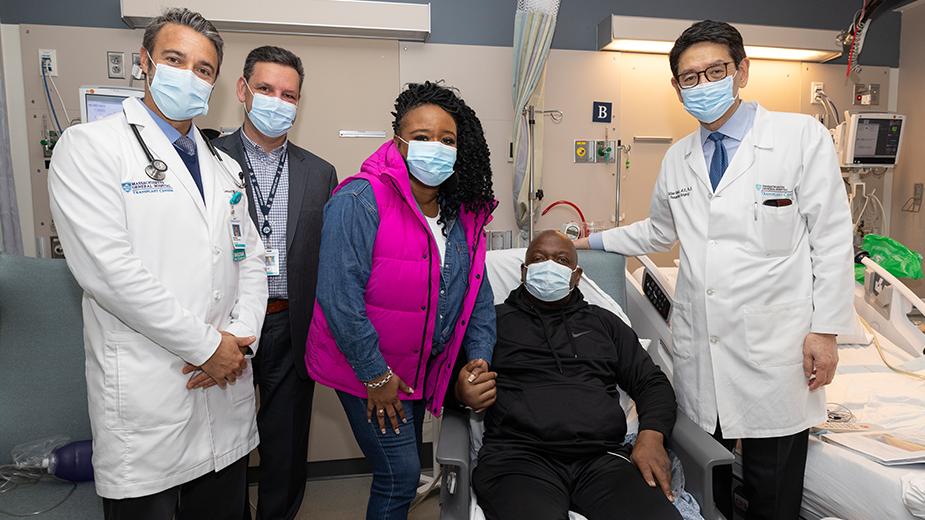First person to have a genetically modified pig kidney transplant dies months later
His discharge was hailed as a major landmark for science

Your support helps us to tell the story
This election is still a dead heat, according to most polls. In a fight with such wafer-thin margins, we need reporters on the ground talking to the people Trump and Harris are courting. Your support allows us to keep sending journalists to the story.
The Independent is trusted by 27 million Americans from across the entire political spectrum every month. Unlike many other quality news outlets, we choose not to lock you out of our reporting and analysis with paywalls. But quality journalism must still be paid for.
Help us keep bring these critical stories to light. Your support makes all the difference.
The first person to have a genetically modified pig kidney transplant has died nearly two months after he underwent the surgery.
The family of Richard “Rick” Slayman confirmed the news. Rick had the transplant at Massachusetts General Hospital in March at the age of 62. Surgeons said they believed the pig kidney would last for at least two years.
The transplant team at Massachusetts General Hospital said in a statement it was deeply saddened by Slayman's passing and offered condolences to his family. They said they didn't have any indication that he died as a result of the transplant.
The Weymouth, Massachusetts, man was the first living person to have the procedure. Previously, pig kidneys had been temporarily transplanted into brain-dead donors. Two men received heart transplants from pigs, although both died within months.
Slayman had a kidney transplant at the hospital in 2018, but he had to go back on dialysis last year when it showed signs of failure. When dialysis complications arose requiring frequent procedures, his doctors suggested a pig kidney transplant.
At the time his discharge was hailed as a major landmark for medical science.

Doctors at the hospital at the time said the kidney transplanted to Mr Slayman was functioning properly, producing urine, removing waste from the blood and maintaining the balance in the body’s fluids.
“This moment – leaving the hospital today with one of the cleanest bills of health I’ve had in a long time – is one I wished would come for many years,” he said in the statement. “Now it’s a reality.”
“Today marks a new beginning not just for me, but for them as well,” Mr Slayman said.
“I’m excited to resume spending time with my family, friends and loved ones free from the burden of dialysis that has affected my quality of life for many years,” he added.
In a statement on Saturday, Slayman's family thanked his doctors.
“Their enormous efforts leading the xenotransplant gave our family seven more weeks with Rick, and our memories made during that time will remain in our minds and hearts,” the statement said.
They said Slayman underwent the surgery in part to provide hope for the thousands of people who need a transplant to survive.
“Rick accomplished that goal and his hope and optimism will endure forever,” the statement said.
Xenotransplantation refers to healing human patients with cells, tissues or organs from animals. Such efforts long failed because the human immune system immediately destroyed foreign animal tissue. Recent attempts have involved pigs that have been modified so their organs are more humanlike.
More than 100,000 people are on the national waiting list for a transplant, most of them kidney patients, and thousands die every year before their turn comes.
Subscribe to Independent Premium to bookmark this article
Want to bookmark your favourite articles and stories to read or reference later? Start your Independent Premium subscription today.